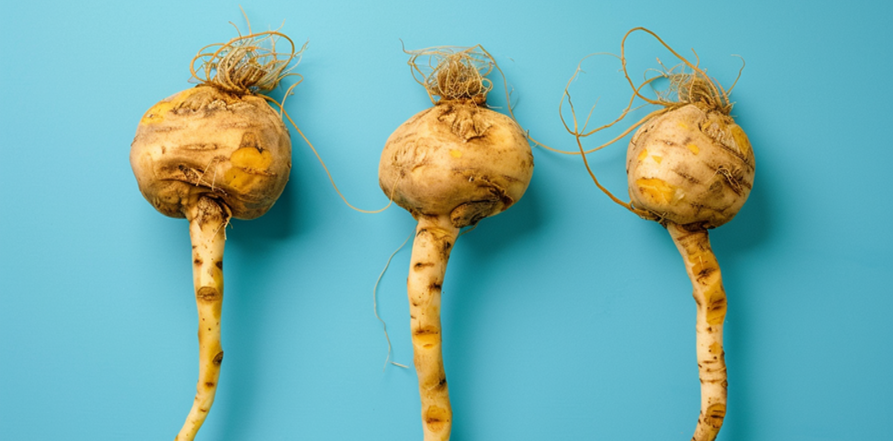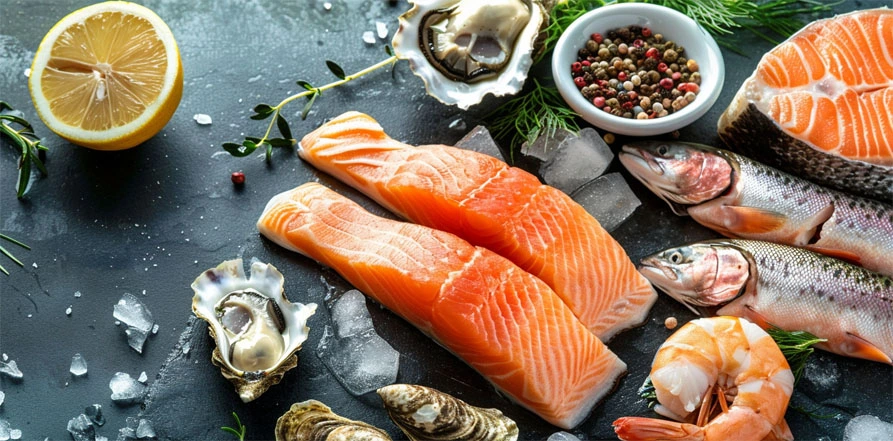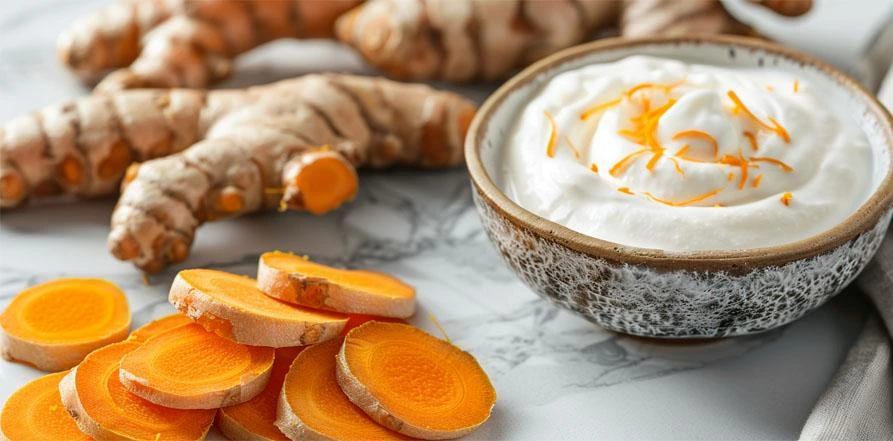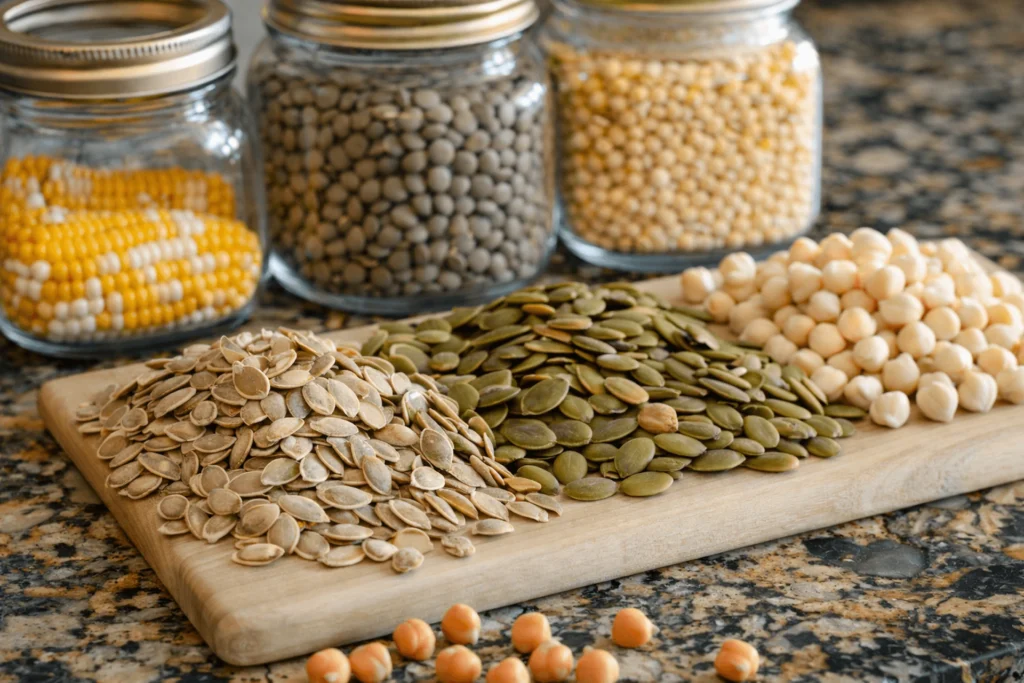By Donnie Yance
What is Maca?
Maca (Lepidium meyenii), is a resilient cruciferous root vegetable native to the high Andean plateaus of Peru at elevations of 11,500-16,400 feet. It has recently garnered significant attention in the natural medicine field due to its extraordinary nutritional, antiviral, and antioxidant properties. Traditionally cultivated by indigenous communities for over 2,000 years, maca has been used both as a dietary staple and medicinal herb.
Its roots contain approximately 60% carbohydrates, 10% protein, and 10% fibers, with the remainder comprising various bioactive compounds.1 For centuries, people in Peru have valued maca for its ability to boost energy and enhance fertility.

Nutritional Powerhouse
Many of these compounds exhibit significant biological activities, such as antioxidant, antimicrobial, anti-inflammatory, and adaptogenic effects.
Research shows it’s packed with nutrients including vitamins A, B, C, and E, minerals like calcium, iron, and zinc, plus proteins, healthy fats, and powerful plant compounds that fight inflammation and oxidative damage. Over a hundred metabolites have been identified in different parts of this plant (hypocotyl, tuber, and roots), including: alkaloids, fatty acids, flavonols, glucosinolates, hydantoins, isothiocyanates, macaenes, macamides, phytosterols, and polysaccharides. 2
Recent clinical studies have investigated maca’s potential benefits for hormonal balance, fertility enhancement, menopausal symptom relief, and cognitive function improvement.3
The plant’s remarkable ability to thrive in harsh environmental conditions may contribute to its rich phytochemical profile, as these compounds often serve as defense mechanisms against environmental stressors.
When dried and powdered, maca has a mild, nutty flavor similar to graham cracker crumbs.
How Maca Can Help Your Body
Research shows maca offers numerous health benefits:
- Increases energy and stamina
- Improves sexual health and libido
- Enhances mood and mental well-being
- Supports muscle growth and exercise recovery
- Protects against damage from UV radiation
- Enhances sports performance
- Helps the body adapt to high altitudes
- Helps fight inflammation
- Supports healthy metabolism
- Improves skin health
- Aids digestion
- Promotes bone strength

The specific benefits you experience may depend on which variety of maca you use (black, red, or yellow) and how it was processed.4 For maintaining prostate health and preventing prostate cancer development, red maca is the most promising variety.5,6
Maca and Sexual Health
One of maca’s most well-known benefits relates to sexual function. Unlike herbs or medications that directly affect hormone levels, studies show maca works differently.
In a 2000 study, researchers found that maca extract improved sexual function in mice and rats, confirming for the first time its traditional reputation as an aphrodisiac.7
Interestingly, scientists discovered that maca doesn’t actually change testosterone or estrogen levels in the blood. Instead, herbalists believe it may work by balancing the parts of the brain that regulate hormones.
In a 12-week human study, people taking maca reported improved sexual desire after 8 weeks, completely independent of any hormone changes. This suggests maca works through different pathways other than a change in hormone levels.8
Counteracts Food Additive Effects on Male Fertility
Research shows that high doses of monosodium glutamate (MSG), a common food additive, may harm male reproductive health by reducing sperm movement, increasing inflammation, decreasing antioxidant protection, and disrupting hormones.
Scientists found that Maca root extract helped improve some of these conditions in male rats, particularly enhancing sperm motility and reducing inflammation.
Excessive amounts of MSG appear to impact fertility. This study indicates that Maca may offer protective benefits.9
Builds Stronger Muscles
As we age, losing muscle mass (sarcopenia) becomes a serious health concern. Recent research has found exciting evidence that maca might help prevent this problem.
In a 2022 laboratory study,10 scientists added yellow maca extract to muscle cells and observed remarkable results. The muscle cells:
- Grew larger in diameter and area
- Showed better development and maturation
- Activated important cellular pathways related to growth and energy
These findings suggest maca could help support healthy muscle maintenance and growth, especially important as we age.
Boosting Athletic Performance
Athletes are increasingly turning to maca to enhance their performance:
- In a 2009 study, male cyclists who took maca for just 14 days improved both their 40 km cycling times and reported increased sexual desire.11
- Elite female handball players showed better performance in various physical tests after taking black maca supplements.12
- In laboratory studies, mice given maca extract showed increased grip strength, greater endurance, and less fatigue after exercise.13
Shown to Boost Physical Performance
A (2024) comprehensive review of scientific studies has found strong evidence that maca root supplements can significantly improve physical performance in both animals and humans.
Researchers analyzed 21 different studies on maca and found it consistently helped with:
- Increasing swimming endurance
- Improving balance and coordination
- Enhancing grip strength
- Reducing lactic acid buildup during exercise
The study showed that maca appears to work in a dose-dependent manner, meaning higher doses generally produced better results. Scientists believe the active compounds in maca, particularly substances called macamides, are responsible for these performance-enhancing effects.
As studies continue, maca emerges as a promising natural supplement for athletes and fitness enthusiasts looking to improve their physical capabilities.14
How does it work? Research suggests maca may strengthen muscle structures, protect against exercise-induced stress, and improve the function of mitochondria (your cells’ energy powerhouses).
Supporting Metabolic Health
Metabolic syndrome—a cluster of conditions including high blood pressure, elevated blood sugar, abnormal cholesterol, and excess belly fat—affects millions of people worldwide.
In a promising animal study,15 rats with metabolic problems showed remarkable improvements after taking maca for one month:
- Lower blood sugar and fat levels
- Better liver function
- Reduced insulin resistance
- Decreased inflammation and oxidative stress
While more human studies are needed, these results suggest maca is helpful for supporting overall health and reducing metabolic syndrome.
Lifting Your Mood
Many maca users report feeling happier and more energetic. A 12-week study with 175 participants found that people taking 3 grams of maca daily experienced significant improvements in:
- Overall mood
- Energy levels
- General quality of life
These benefits likely overlap and reinforce each other—feeling more energetic often improves mood, and feeling happier typically increases the motivation to be active.
Maca’s Potential Against Cancer
Like other vegetables in its family (broccoli, cauliflower, etc), maca contains compounds that show promise against cancer in early research.
Laboratory and animal studies have found that maca extracts can reduce the viability of various cancer cells, including skin, breast, prostate, lung, cervical, and colon cancers. Some animal studies even suggest maca might enhance the effectiveness of chemotherapy when used together.16
Synergism of Maca in Combination with Saw Palmetto (Serenoa repens) Extract for Chemoprevention of Prostate Cancer
Research reveals that combining maca root with saw palmetto extract may help prevent prostate cancer. Scientists studied different varieties of maca (a plant from Peru) combined with saw palmetto (a plant commonly used for prostate health).
The study found:
- Different colored maca roots (red and black) contain different beneficial compounds
- Red maca showed stronger antioxidant properties than black maca
- A specific mixture of red maca, black maca, and saw palmetto was most effective at: reducing inflammation (by blocking the COX-2 enzyme) and killing prostate cancer cells in the lab.
The three-plant combination produced the best results against prostate cancer cells that respond to male hormones. These promising findings suggest that this natural mixture deserves further study and might eventually lead to new approaches for prostate cancer prevention.17
Is Maca Safe?
Maca has an excellent safety record based on both its long history of use and modern research. A study of 175 people concluded that maca extracts are “well tolerated and safe.” 18
The Bottom Line and Personal Insights
Maca is a remarkably versatile herb with wide-ranging benefits supported by both traditional wisdom and modern science. I personally regard Maca as an exceptional nourishing tonic herb that particularly supports the ‘Essence’ or reproductive energy in traditional Chinese medicine terms, balancing both feminine (yin) and masculine (yang) aspects. From enhancing sexual health and hormonal balance to improving mood, cognitive function, and energy levels, maca offers multiple pathways to better health.
In my clinical practice, I incorporate maca extract into a specialized formula for masculine Essence restoration, combining it synergistically with other potent botanicals: Tribulus terrestris (puncture vine), Mucuna pruriens (velvet bean), and Eurycoma longifolia. This combination appears to optimize testosterone production, libido, and overall vitality in a gentle yet effective manner.
As research continues to uncover the mechanisms behind maca’s effects, this ancient Peruvian root is gaining recognition as a valuable natural supplement for promoting: energy, physical strength, sexual health, fitness, and vitality.
About the Author:
Donald R. Yance is the founder of the Mederi Center. A Clinical Master Herbalist and Certified Nutritionist, Donnie is renowned for his extraordinary knowledge and deep understanding of the healing properties of plants and nutrition, as well as of epigenetics, laboratory medicine, oncologic pathology, and molecular oncology. He is a professional member of the American Herbalists Guild, National Association of Nutrition Professionals, Academy of Integrative Health and Medicine, and the Society for Integrative Oncology.
References:
1. da Silva Leitão Peres N., Cabrera Parra Bortoluzzi L., Medeiros Marques L.L., Formigoni M., Fuchs R.H.B., Droval A.A., Reitz Cardoso F.A. Medicinal Effects of Peruvian Maca (Lepidium meyenii): A Review. Food Funct. 2020;11:83–92. doi: 10.1039/C9FO02732G.
2. Carvalho F.V., Ribeiro P.R. Structural Diversity, Biosynthetic Aspects, and LC-HRMS Data Compilation for the Identification of Bioactive Compounds of Lepidium meyenii. Food Res. Int. 2019;125:108615. doi: 10.1016/j.foodres.2019.108615.
3. Carvalho F.V., Fonseca Santana L., da Silva V.D.A., Costa S.L., Zambotti-Villelae L., Colepicolo P., Ferraz C.G., Ribeiro P.R. Combination of a Multiplatform Metabolite Profiling Approach and Chemometrics as a Powerful Strategy to Identify Bioactive Metabolites in Lepidium meyenii (Peruvian Maca) Food Chem. 2021;364:130453. doi: 10.1016/j.foodchem.2021.130453.
4. Wang S, Zhu F. Chemical composition and health effects of maca (Lepidium meyenii). Food Chem. 2019 Aug 1;288:422-443. doi: 10.1016/j.foodchem.2019.02.071. Epub 2019 Feb 22. PMID: 30902313.
5. Gonzales, G.F.; Miranda, S.; Nieto, J.; Fernández, G.; Yucra, S.; Rubio, J.; Yi, P.; Gasco, M. Red maca (Lepidium meyenii) reduced prostate size in rats. Reprod. Biol. Endocrinol. 2005, 3, 5.
6. Gonzales, C.; Rubio, J.; Gasco, M.; Nieto, J.; Yucra, S.; Gonzales, G.F. Effect of short-term and long-term treatments with three ecotypes of Lepidium meyenii (MACA) on spermatogenesis in rats. J. Ethnopharmacol. 2006, 103, 448–454.
7. Zheng BL, He K, Kim CH, Rogers L, Shao Y, Huang ZY, et al. Effect of a lipidic extract from Lepidium meyenii on sexual behavior in mice and rats. Urology. 2000;55:598–602. [PubMed] [Google Scholar]
8. Gonzales GF, Córdova A, Vega K, Chung A, Villena A, Góñez C, et al. Effect of Lepidium meyenii (maca) on sexual desire and its absent relationship with serum testosterone levels in adult healthy men. Andrologia. 2002;34:367–72. [PubMed] [Google Scholar]
9. Omolaoye TS, Rawat SS, Shehab NG, El Nebrisi E, Du Plessis SS. The effects of Lepidium meyenii on MSG-induced subfertility in male Wistar rats: Targeting oxidative stress, pro-inflammatory cytokines, steroidogenic enzymes, and reproductive hormones regulation. Heliyon. 2025 Jan 24;11(3):e42246. doi: 10.1016/j.heliyon.2025.e42246. PMID: 39944348; PMCID: PMC11815890.
10. Dong Yi,Yoshikawa M., Sugimoto T., Tomoo K., Okada Y., Hashimoto T.* Effects of maca on Muscle Hypertrophy in C2C12 Skeletal Muscle Cells. Int J Mol Sci. 2022 Jun; 23(12): 6825.
11. Mark Stone a, Alvin Ibarra b, Marc Roller c, Andrea Zangara a, Emma Stevenson, A pilot investigation into the effect of maca supplementation on physical activity and sexual desire in sportsmen Journal of Ethnopharmacology Volume 126, Issue 3, 10 December 2009, Pages 574-576
12. Sunghwun Kang, Byung-O Ahn, Myeong-Hun Park, Seung-Taek Lim, Eunjae Lee. Effects of Black maca supplement on isokinetics muscular performance of elite women’s handball players: placebo-controlled, crossover study. Food Nutr Res. 2023 Dec 15:67. doi: 10.29219/fnr.v67.10250. eCollection 2023.
13. Hongkang Zhu 1, Wenqian Xu, Ning Wang, Wenhao Jiang, Yuliang Cheng, Yahui Guo, Weirong Yao, Bin Hu, Peng Du, He Qian. Anti-fatigue effect of Lepidium meyenii Walp. (maca) on preventing mitochondria-mediated muscle damage and oxidative stress in vivo and vitro. Food Funct. 2021 Apr 7;12(7):3132-3141. doi: 10.1039/d1fo00383f. Epub 2021 Mar 17.
14. Huerta Ojeda Á, Rodríguez Rojas J, Cancino-López J, Barahona-Fuentes G, Pavez L, Yeomans-Cabrera MM, Jorquera-Aguilera C. Effects of Maca (Lepidium meyenii Walp.) on Physical Performance in Animals and Humans: A Systematic Review and Meta-Analysis. Nutrients. 2024 Dec 30;17(1):107. doi: 10.3390/nu17010107. PMID: 39796542; PMCID: PMC11723211.
15. Mohamed SM, Shalaby MA, El-Shiekh RA, Bakr AF, Kamel S, Emam SR, El-Banna HA. Maca roots: A potential therapeutic in the management of metabolic disorders through the modulation of metabolic biochemical markers in rats fed high-fat high-carbohydrate diet. J Ethnopharmacol. 2024 Mar 1;321:117533. doi: 10.1016/j.jep.2023.117533. Epub 2023 Dec 8. PMID: 38056538.
16. Kasprzak D, Gaweł-Bęben K, Kukula-Koch W, Strzępek-Gomółka M, Wawruszak A, Woźniak S, Chrzanowska M, Czech K, Borzyszkowska-Bukowska J, Głowniak K, et al. Lepidium peruvianum as a Source of Compounds with Anticancer and Cosmetic Applications. International Journal of Molecular Sciences. 2024; 25(19):10816. https://doi.org/10.3390/ijms251910816
17. Gaweł-Bęben K, Kukula-Koch W, Szwajgier D, Antosiewicz-Klimczak B, Orihuela-Campos RC, Głowniak K, Meissner HO. Synergism of Specific Maca Phenotypes (Lepidium peruvianum) in Combination with Saw Palmetto (Serenoa repens) Extract for Chemoprevention of Prostate Cancer as Determined in In Vitro Cytotoxicity Assays on Human Epithelial and Prostate Cancer Cells. Molecules. 2024 Nov 28;29(23):5632. doi: 10.3390/molecules29235632. PMID: 39683791; PMCID: PMC11643235.
18. Gonzales-Arimborgo C, Yupanqui I, Montero E, Alarcón-Yaquetto DE, Zevallos-Concha A, Caballero L, Gasco M, Zhao J, Khan IA, Gonzales GF. Acceptability, Safety, and Efficacy of Oral Administration of Extracts of Black or Red Maca (Lepidium meyenii) in Adult Human Subjects: A Randomized, Double-Blind, Placebo-Controlled Study. Pharmaceuticals (Basel). 2016 Aug 18;9(3):49. doi: 10.3390/ph9030049. PMID: 27548190; PMCID: PMC5039502.








